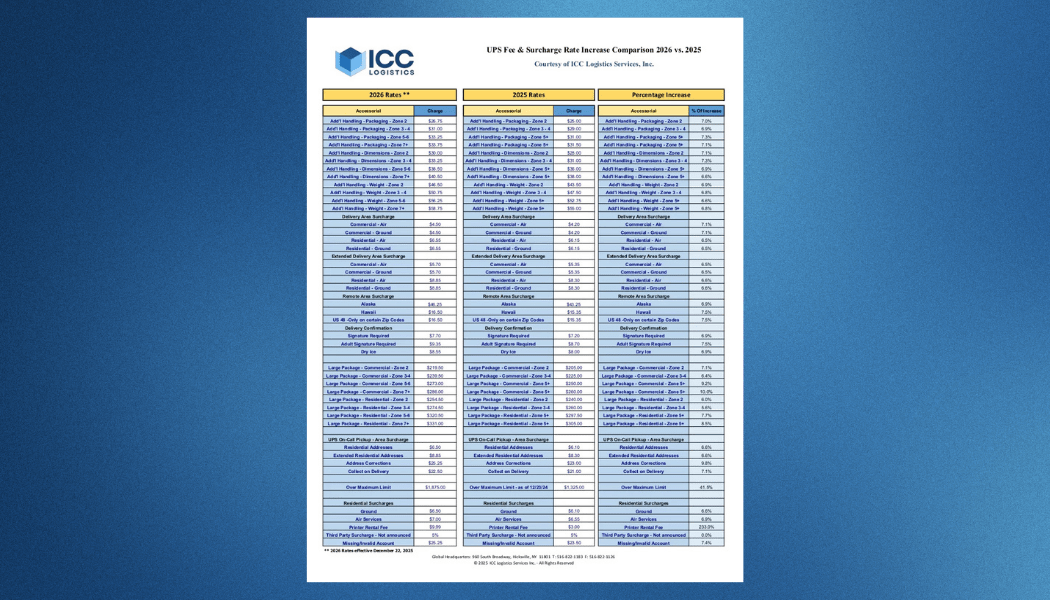Earlier this year we heard of numerous trucking operations just shutting down, unable to make their businesses operate profitably. We’re also hearing many other truckers are now laying off hundreds of employees in an effort to “stop the bleeding” or at least to help offset spiraling operating costs.
Recent reports from financial firm, Bloomberg Intelligence states that this year’s Peak Shipping Season won’t be particularly strong. In fact, Bloomberg expects the growth rate of the real Gross Domestic Product to drop from 2.9% in 2018, to 2.3% in 2019 and 1.8% in 2020.
In the past, these numbers would be clear warning signs of a slowing economy to come. Trucking operations were in fact a fairly accurate bellwether of the state of the economy, whether it was on the rise, or about to slow down. However, in today’s global driven economy, there are many more factors to be taken into account before such predictions are proven accurate.
Today many manufacturers are carrying high levels of inventories reducing the need for trucking capacity; there is obviously a great deal of uncertainty surrounding trade talks between China and the US, the USMCA and how these talks and potential agreements will finally end up, and of course, Brexit is still up in the air.
All of this “noise” is creating an unsettled trucking industry and it’s anyone’s guess where all of these issues will ultimately lead us.
However, even with all of this uncertainty, one thing we know for sure is that the LTL freight carriers will be increasing their rates shortly and passing those increases on to all of their shipper customers, if they have not already done so.
The fourth quarter of every calendar year is typically the time for shippers to evaluate their transportation service providers and the level of overall service they have received from those freight carriers in the past year. It’s also a time to track freight budgets to make sure they are still in line to meet calendar year 2019 predictions and of course, to outline their service needs and freight budget requirements for calendar year 2020.
So, is this trucking uncertainty we’ve been hearing about an opportunity for shippers to not only strengthen their relationships with their freight carriers and well into the future, but also an opportunity to benefit from lower freight costs….you bet it is.
Some might look at this pending opportunity and think with a potential slowing down of the economy that their freight carriers will obviously be in a “weakened” financial condition. And, that this might be an excellent time for the shippers to take advantage of their freight carriers and seek drastically reduced rates.
A word of caution to our shipper friends with that thought process in mind; don’t be fooled into thinking you actually have the upper hand. The LTL freight carriers are well aware of the “hammer over the head” effect that was put on them in years past; first during the initial stages of deregulation, as well as through every recession, and especially during the “Great Recession”. They’re on to you and they’re not going to roll over and play dead, you can bet on that.
However, this is an excellent time for shippers to finally think about creating a strong, mutually beneficial and long term “profitable” business relationship for the shipper and for their carriers as well. Now isn’t that a novel approach!
The first step is obviously to ensure the carriers they are working with can provide ALL of the services the shipper needs. This includes timely pick-up and delivery, claim free service, advanced technology services to meet the shipper’s needs as well as any other “value added” services the shipper needs to operate efficiently. Once that process has been completed and documented, the next step is to benchmark their current freight costs to ensure the rates and fees being paid are the most competitive rates for the services offered.
Notice we didn’t say the “lowest” rates or the “cheapest” rates because that’s not a place a shipper wants to find themselves especially if they have not first qualified the freight carrier’s services as totally meeting the shipper’s needs. While all of this sounds very logical, you would be amazed at the number of companies that select carriers solely on the basis of costs and wind up paying much more than they should in the end, perhaps even losing customers due to poor service.
But how can a shipper benchmark their rates if they only have access to their own shipment data to analyze. The answer is they can’t and that’s why they need help with the process to ensure they receive the “best deal” for their company for the long haul.
Shippers should engage a Third Party Consultant that has access to millions of shipping transactions and pricing data for similarly situated shippers, can you say DATA MINING CREATES BIG DATA! These firms have the ability to benchmark the rates a shipper should receive based on their volumes, seasonality, shipping lanes, average weights per shipment, etc. Once the benchmark analysis is completed these consultants will provide Target Pricing specifically generated for the shipper and document the savings the shipper will receive. These firms almost always base their fees on a percentage of the actual savings achieved, AKA Gain Share, for their clients. Now that’s a deal worth looking into.
If this process sounds like something your firm would find valuable, we’d love to hear from you.



 to receive our FREE white papers:
to receive our FREE white papers: